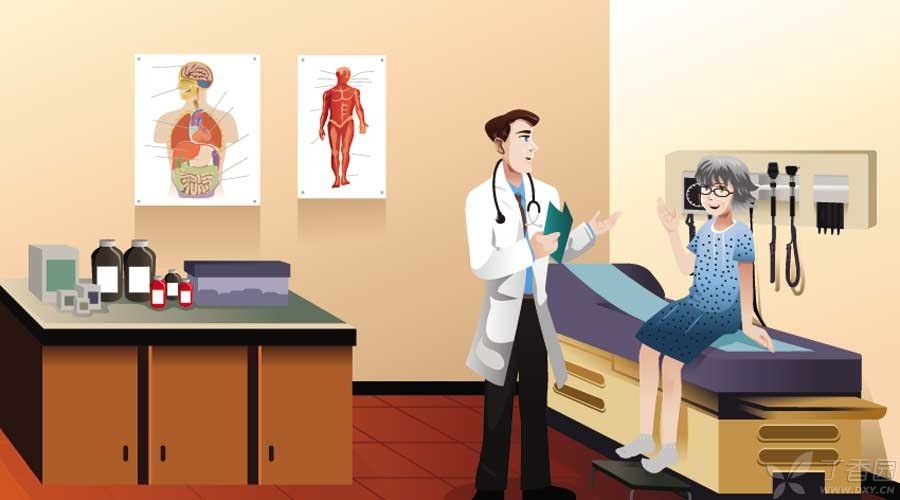
At present, the incidence rate of colorectal cancer in our country is getting higher and higher. As colorectal cancer has no symptoms in the early stage, many patients have developed to the middle and late stage when they are diagnosed, thus losing the best treatment opportunity.
Colonoscopy is very important for early detection of colorectal cancer and other intestinal diseases. Therefore, doctors suggest that people over 50 years old should undergo colonoscopy.
Who should have colonoscopy?
These people are at high risk of colorectal cancer:
-
Family history: Some members of the family have suffered from colorectal cancer, especially their immediate family members, which is a high-risk factor for colorectal cancer.
-
Lifestyle: Long-term high protein, high fat and low cellulose diet and lack of physical exercise will increase the incidence of colorectal cancer.
-
Inflammatory bowel disease: Patients with chronic intestinal inflammation such as ulcerative colitis are prone to colorectal cancer.
Suggestions for Examination of High Risk Groups
- It is recommended to start screening for colorectal cancer at the age of 40 or so, with an average reexamination every 3-5 years. If adenoma or malignant polyps are found, they should be removed in time, followed by annual reexamination for 3 years, and then once every 3-5 years.
Suggestions for Examination of Non-high Risk Population
- It is recommended that all people over 50 years old should have colonoscopy. If no problem is found, colonoscopy can be carried out every 10 years or so in the future. If polyps are found during examination, the first 3 years after resection should be followed up once a year.

Why can colonoscopy find cancer?
Ideally, colonoscopy can see the mucosal surface of the whole large intestine. If what abnormality is found during the examination, the mucosa of the abnormal part can be directly taken for pathological examination to see if there is the possibility of canceration.
Most colorectal cancers develop from the initial adenoma, which may take years or even longer.
If the adenoma of the patient has no canceration or early canceration, it can be found through colonoscopy and treated by endoscopic resection, which can effectively prevent the occurrence of colorectal cancer.

The development process of colorectal cancer: 1. Cancer may be just a polyp at the beginning; 2 ~ 4. After several years of development, polyps become cancerous and grow continuously, and the cancer enters the middle and late stages and metastasizes.
Is colonoscopy painful?
The answer to this question varies from person to person. Everyone feels different about the same thing. With the development of medical technology, the discomfort of colonoscopy has been greatly reduced.
During the examination, there may be varying degrees of distending pain or pulling feeling, but as long as they can relax and actively cooperate according to the doctor’s instructions, the vast majority of people can accept the pain degree of colonoscopy and complete the examination.
If you are very sensitive to pain and cannot tolerate it, you can also choose to undergo painless colonoscopy under intravenous anesthesia.
Preparation before colonoscopy
The quality of the preparation before colonoscopy has a great influence on the accuracy of colonoscopy.
Before conducting the inspection, there are the following precautions:
- Check to eat liquid food with less residue the day before; Take laxatives on the night before the examination or 6-8 hours before the examination. After several diarrhea, there is no food residue until the water sample is pulled. If constipation occurs at ordinary times and laxatives are not discharged cleanly, it is better to start eating food with less residue 3 days before the examination. Drink water before non-anesthetic colonoscopy, but it is better not to eat liquid or residue food again.
Should we pay attention to what after the examination?
Some patients have abdominal pain, abdominal distension and other feelings after the examination. They do not need to be too nervous. They can gently rub their abdomen and walk slightly, which can be relieved after anal exhaust-that is, farting.
After the examination, it is safer to rest for half an hour before leaving the hospital.
Patients undergoing biopsy or polypectomy may have a small amount of blood in their stool after operation. This kind of situation generally does not require special treatment.
If bleeding is more, or there is continuous abdominal pain, it is good to go to the hospital again.
As long as early detection, early treatment, cancer is not terrible. Colonoscopy is early detection, early treatment of colorectal cancer is the most important means. I hope that friends over 50 years old can do an colonoscopy as soon as possible for their own health.
Want to know more? Click to experience 1 yuan and ask the doctor?
